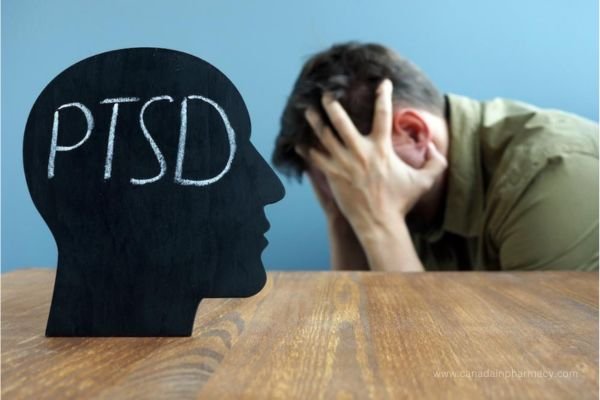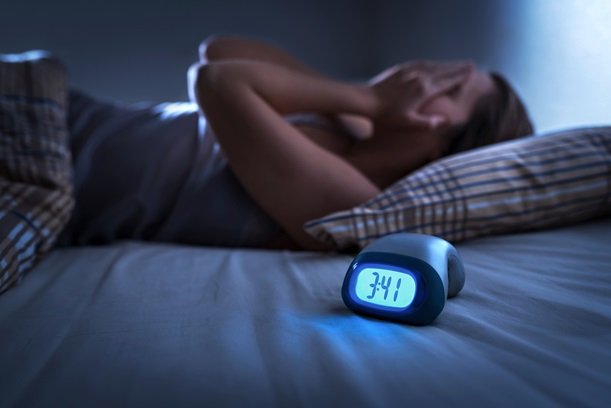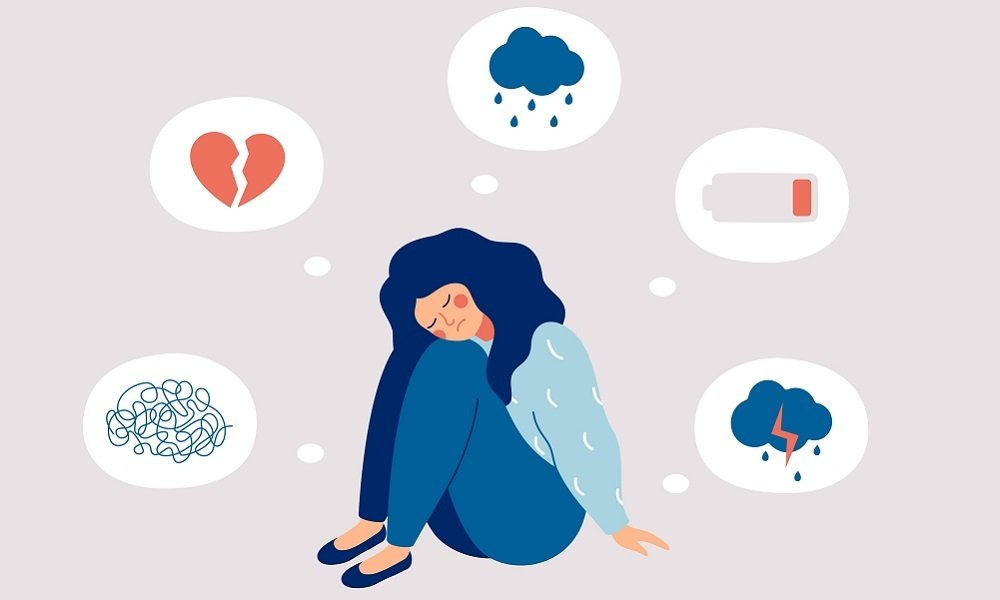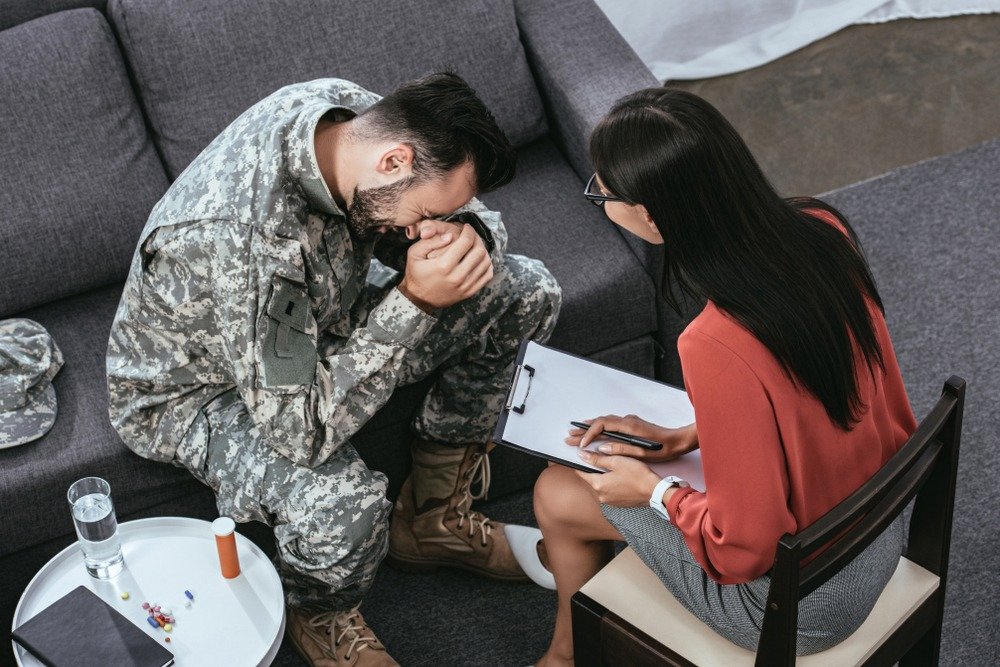
Trauma and Sleep: Why PTSD and Insomnia Often Go Hand in Hand
Trauma and Sleep: Why PTSD and Insomnia Often Go Hand in Hand
Trauma and sleep disturbances feed into each other in a vicious cycle. Whereby, the brain and body stay in a hypervigilant state post-trauma, it makes it difficult to relax enough to fall asleep. Such a state of arousal marked by increased heart rate, racing thoughts, and always being wound up prevents the body from entering restorative sleep stages. Nightmares and flashbacks exacerbate the inability to sleep well, leading to frequent awakenings and further engraining a fear of sleeping. This gradually transforms into chronic insomnia, where a conditioned brain fails to associate time for sleep as rest but stress, making it even more impossible to break from the cycle.
Poor sleep results in more effects than just an overwhelming feeling of tiredness. Inadequate sleep impairs emotional regulation, weakens memory processing, and increases stress hormones like cortisol, all of which worsen the symptoms of PTSD. Sleep deprivation also reduces the brain’s ability to process traumatic memories properly, keeping them stuck in an unprocessed, intrusive state. This means that while PTSD disrupts sleep, the lack of sleep, in turn, intensifies PTSD symptoms, creating a self-perpetuating loop.
Both conditions must be treated simultaneously, either with cognitive behavioral therapy for insomnia (CBT-I), trauma-focused therapy, medication, or relaxation techniques. The improvement in sleep quality can lead to better control of symptoms and, therefore, a more realistic recovery.
What is Insomnia?
Insomnia is not just a couple of sleepless nights; it is a continuous disruption of the body’s ability to rest, recover, and reset. It is the racing mind when the world is silent, the tired body unable to surrender to sleep. Insomnia is not just about failing to fall asleep but also waking up too often, too early, or feeling completely unrested after spending hours in bed. This deprivation gradually leads to the wear and tear not only on mental but also on physical health by causing mood swings, failing concentration, weakened immunity, and a highly heightened stress response. Whether caused by stress, anxiety, trauma, or perhaps lifestyle habits, insomnia can easily become a frustrating cycle where the more one tries to sleep, the more elusive it becomes.

Causes of Insomnia:
Other conditions leading to sleeplessness are attributed to multiple underlying psychological, physiological, and environmental factors. Such include some of the common underlying reasons for suffering from insomnia explained below.
a. Stress and Anxiety
Racing thoughts, anxiety, and hyperactive mind can really make sleeping time non-existent. Work stress, financial tensions, failing relationships, or other life-altering changes can often be a cause of insomnia. Even more common causes include generalized anxiety and PTSD as generalized anxiety keeps the nervous system constantly on the edge, hence sleep eludes it.
b. Poor Sleep Habits
Irregular sleep schedules, bingeing on screen time before bed, drinking caffeine or alcohol close to bedtime, and stimulating events before sleep will all interfere with the body’s overall natural wake-sleep cycle. That is, an irregular bedtime schedule can mess up the body’s internal clock to make it difficult to fall asleep or remain asleep.
c. Medical Conditions and Medications
Chronic pain, acid reflux, asthma, heart disease, and neurological disorders are also factors that disrupt sleep. Some prescriptions, such as antidepressants, stimulants, and blood pressure medication, may also cause insomnia due to side effects.
d. Hormonal Changes
Changes in hormones—like when a woman is pregnant, experiencing menopause, or has a thyroid disorder—affect the way individuals sleep. Shifts in melatonin and cortisol hormone can also disrupt the body’s internal rhythm.
e. Mental Health Disorders
Depression, PTSD, and other mental health conditions can significantly disrupt sleep patterns. While some individuals experience excessive sleep, others struggle with persistent insomnia, creating a feedback loop that worsens both sleep and mental health.
Understanding the root cause of insomnia can help find a proper treatment. Whether it’s stress, better sleep hygiene, or management of an underlying medical condition, targeting insomnia at its root can allow for restful sleep to be regained.
Understanding PTSD
Post-Traumatic Stress Disorder, or PTSD, is an anxiety disorder related to a frightening experience or threat of death that causes significant psychological distress. Its symptoms are often more than just a normal reaction to stress: they are something that leaves someone stuck in the heightened state of fear, anxiety, or emotional distress long after the danger is gone. There are various life-threatening experiences including accidents, natural disasters, being exposed to war, assault, abuse, among others.
The common symptoms of intrusive are flashbacks, nightmares, and distressing memories that cause them to relive the trauma. They also tend to exhibit avoidance behaviors by avoiding places, people, or situations that remind them of the event. Other changes in mood and cognition that can be attributed to PTSD include feelings of detachment, guilt, or emotional numbness. Notable symptoms include hyperarousal, often manifesting as irritable mood, difficulty concentrating, insomnia, and exaggerated startle response. These symptoms keep the nervous system in a chronic state of alertness, which makes it hard to relax.
PTSD can severely interfere with daily life, relationships, and well-being, but proper treatment, such as therapy, medication, and coping skills, can help work towards recovery and regaining some control over life.

Symptoms of PTSD
The symptoms can be severe in intensity and manifest shortly after a traumatic event, or even several years later. They are grouped into four basic categories: intrusion, avoidance, negative changes in mood and cognition, and hyperarousal.
a. Intrusive Symptoms
- Flashbacks – The victim feels that he or she is reliving the traumatic event again.
- Nightmares – Distressing dreams about the trauma.
- Forced Recollection – Recurrent and distressing thoughts about the event.
- Emotional and Physical Reactions -The person suffers from intense emotional distress or even more physical symptoms, such as a fast heartbeat or sweating, whenever they are reminded of the trauma.
b. Avoidance Symptoms
- Avoided places, people, or activities – Avoiding anything that may trigger memories of the trauma.
- Emotional numbing – Unable to experience joy or love.
- Inhibiting thoughts and emotions – Avoiding conversations or reminders about the trauma.
c. Negative Changes in Mood and Cognition
- Persistent Negative Thoughts – Hopelessness, self-guilt, or self-blame
- Memory Problems – Failure to recall a crucial element of the traumatic experience.
- Loss of Interest – Loss of interest in activities which a person would have earlier found pleasurable.
- Social Withdrawal – Strong isolation, and feeling cut off from others.
How trauma affects sleep?
Trauma causes a lot of effects on the brain and the body, mostly in terms of how they deal with stress and relaxation. As a result of a disturbing incident, for example, military combat, abuse, natural disasters, or accidents; the brain will have developed hyperactivity of threat-detection in the brain’s system. An overactive amygdala manages the body’s fight-or-flight response.
It can cause in an overactivated system the following:
- Hyperarousal which makes one cannot relax and therefore sleep.
- Inability to reach deep sleep, which will prevent full-body rest and recovery.
- Increased levels of stress hormones, such as cortisol, disrupt the sleep cycles.
- Frequent wakings because of nightmares or intrusive memories.
The Relationship Between PTSD and Insomnia
PTSD and insomnia are deeply connected, creating a cycle where trauma disrupts sleep, and sleep deprivation worsens PTSD symptoms. People with PTSD often struggle with nightmares, racing thoughts, and heightened anxiety, making it difficult to fall or stay asleep. At the same time, lack of restful sleep impairs emotional regulation and increases stress, making PTSD symptoms even more intense. Understanding this relationship is crucial for finding effective treatments that address both conditions together.
1. Hyperarousal and Sleep Disturbances
Hyperarousal is one of the hallmarks of PTSD, leaving the body at a heightened level of alertness. This level of alertness makes it impossible for people to fall asleep or stay asleep as their nervous system remains in an alert state of expecting danger.
Hyperarousal can cause:
- Sleep onset insomnia: a person finds it hard to fall asleep.
- Waking up repeatedly at night (sleep maintenance insomnia)
- Waking up from sleep after hours, yet still feeling really tired
2. Nightmares and Flashbacks
In the case of individuals with PTSD, sleep is frequently disrupted by nightmares and flashbacks associated with their trauma. These nightmares can make people wake up in a panic, drenched in sweat, or feeling like they are reliving their trauma. This, over time, can lead to fear of sleep, causing the sufferer to actively avoid going to bed and exacerbating insomnia.
3. Altered Sleep Architecture
Research has shown that PTSD interrupts sleep patterns, especially REM sleep; REM sleep is an essential stage for emotional processing. People suffering from PTSD have:
- REM sleep: It’s shortened to result in emotional regulation.
- Frequent awakenings during REM, meaning continuous distressing.
- Decreased deep sleep impacts recovery of the body, and cognition.
4. Comorbid Mental Illnesses
PTSD rarely occurs alone—it is often accompanied by anxiety, depression, and substance use disorders, all of which can contribute to insomnia. Anxiety leads to rumination and racing thoughts, while depression is linked to early morning awakenings and fragmented sleep.

The Long-Term Effects of PTSD-Related Insomnia
Chronic sleep disturbances can have serious consequences on physical and mental health. Those with PTSD-related insomnia are at higher risk for:
- Worsening PTSD symptoms, making trauma harder to process.
- Increased risk of cardiovascular diseases due to prolonged stress.
- Weakened immune function, leading to frequent illness.
- Cognitive decline, affecting memory, focus, and decision-making.
- Substance abuse, as individuals may turn to alcohol or drugs to cope with sleeplessness.
This cycle of poor sleep and heightened stress can make PTSD symptoms more severe and long-lasting, which is why addressing sleep issues is crucial for recovery.
Effective Strategies for Managing PTSD-Related Insomnia
PTSD-related insomnia can be challenging, but there are several treatments and coping strategies that can help improve sleep quality.
1. Cognitive Behavioral Therapy for Insomnia (CBT-I)
CBT-I is the gold standard for treating insomnia, especially in patients with PTSD. It includes:
- Challenging negative beliefs about sleep
- Establishing a consistent bedtime routine
- Using relaxation techniques to calm the nervous system
- Practicing stimulus control, such as using the bed only for sleep
2. Exposure Therapy for PTSD Nightmares
For those whose nightmares are especially severe, IRT can be very helpful. This includes:
- Rewriting the nightmare with a positive or neutral ending
- Practicing the new dream scenario while awake
- Gradually reducing the fear associated with sleep
3. Medication Options
While therapy should always be the first line of treatment, some people benefit from medications such as:
- Prazosin, which helps reduce PTSD-related nightmares
- Melatonin: a natural sleep aid, controls the sleep-wake cycle
- Antidepressants: sometimes for co-occurring anxiety and depression
But medications must only be used when prescribed by a doctor since certain sleeping pills might worsen the symptoms after a period of time.
4. Lifestyle Changes to Improve Sleep Quality
Even lifestyle changes can contribute much to improve the quality of sleep:
- Restrictive use of caffeine and alcohol since both can disrupt the sleep cycle.
- Developing a soothing bedtime routine, such as meditation or deep breathing.
- Regular exercise, but not intense exercise before bedtime.
- Blackout curtains and white noise machines can create an ideal sleep environment.
5. Mindfulness and Relaxation Techniques
Mindfulness, yoga, or progressive muscle relaxation can help calm nighttime anxiety and lead to better sleep. These techniques teach the brain to focus on the present rather than dwelling on past trauma.

Final Thoughts
PTSD is closely related to insomnia, whereby trauma usually leads to chronic sleep disturbances that result in aggravation of the state both mentally and physically. However, one can break this cycle by combining the perfect blend of therapy and lifestyle changes with self-care to regain good sleeping habits.
If you or someone you know is struggling with PTSD-related insomnia, seeking professional help can be a life-changing step toward recovery. Sleep is not just a luxury—it is a crucial part of healing, and everyone deserves the opportunity to rest peacefully.
Have you experienced PTSD-related sleep problems? Share your thoughts and experiences in the comments below, and help raise awareness about the impact of trauma on sleep!
